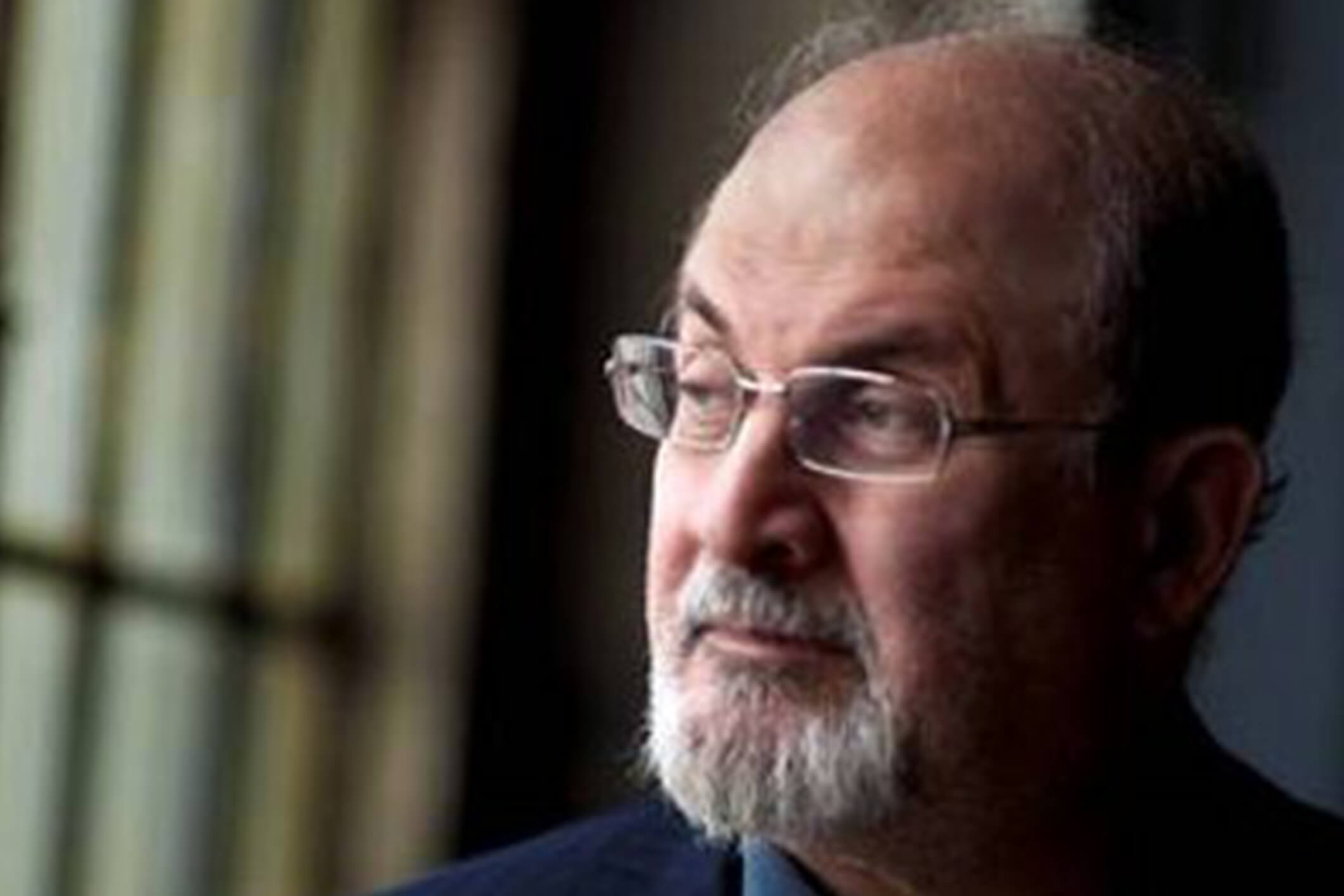Salman Rushdie Injured Reaction Of The World
 Salman Rushdie Injured Reaction source by: twitter.com
Salman Rushdie Injured Reaction source by: twitter.com
Iran-backed On Saturday, August 13, the Lebanese terrorist group Hezbollah said
it didn’t know anything about the brutal attack on author Salman Rushdie.
This response came almost a day after a 24-year-old Islamist named Hadi Matar stabbed the writer.
During a show, when Salman Rushdie was on the stage before a talk in New York, he attacked him.
Ayatollah Khomeini of Iran issued a fatwa against Salman Rushdie for his allegedly blasphemous
book The Satanic Verses 30 years ago. Since then, Rushdie has been living with threats.
Hadi Matar, the person who attacked, had a fake driver’s license with the name Hassan Mughniyah on it.
This name is a mix of the names of two top leaders of the terrorist organization Hezbollah.
Hassan Nasrallah is the current leader of Hezbollah, and Imad Mughniyeh was a top Hezbollah
official who was close to the head of Iran’s Quds Force, Qassem Soleimani.
In a planned attack in Iraq in January 2020, the US killed Qassem Soleimani.
Ayatollah Ruhollah Khomeini
Iran backs Hezbollah, and Iran’s former supreme leader, Ayatollah Ruhollah Khomeini,
told Muslims in 1988 to kill Salman Rushdie for blasphemy because of his book The Satanic Verses.
He had a price of more than $3 million on his head for anyone who killed him.
Hadi Matar, 24, from New Jersey, is thought to be the person who attacked.
On Saturday, he was charged with trying to kill someone and beating someone.
Ali Tehfe, the mayor of Yaroun in south Lebanon, said that Matar and his family are from there.
Tehfe said that Matar’s parents moved to the U.S., where he was born and grew up.
When asked if Matar or his parents were part of Hezbollah or supported it,
Tehfe said he knew “nothing at all” about their political views because they lived abroad.
“Glad to hear”
Rushdie, who was hurt and had blood on him,
was flown to a hospital and had surgery late Friday.
His agent, Andrew Wylie, said the writer was on a ventilator and likely to lose an eye.
His liver was damaged, and nerves in his arm were cut.
Iran’s government hasn’t said anything about the attack in an official way.
But in Tehran, some people who were willing to talk to The Associated Press praised
the attack on a writer whose 1988 book they thought hurt the Islamic faith.
There are still pictures of the late Ayatollah Ruhollah Khomeini on the streets of Tehran.
Reza Amiri, 27, remarked, “I don’t know Salman Rushdie, but I’m delighted he insulted Islam.”
“This is what happens to holy-joke-makers.” Tehran-based Mohammad Mahdi Movaghar is 34.
“Felt good” seeing Rushdie hurt. Geographer Mahshid Barati, 39, remarked, “I suppose they wanted to isolate Iran.”
“This will hurt our connections with Russia and China.”
Since then-President Donald Trump pulled the US out of the nuclear deal on his own in 2018,
Tehran’s currency has dropped and its economy has collapsed.
Iran, meanwhile, has gotten its enriched uranium closer than ever
to levels that can be used to make weapons.
“It will make Iran even more alone,” said Mashallah Sefatzadeh,
a former diplomat from Iran.
Salman Rushdie Injured Reaction
On Saturday, several Iranian newspapers were full of praise
for the person who attacked and badly hurt Rushdie.
The hard-line Kayhan newspaper, whose editor-in-chief
is chosen by Iran’s Supreme Leader Ayatollah Ali Khamenei, said,
“A thousand bravos… to the brave and obedient person who
attacked the apostate and evil Salman Rushdie in New York.
“Kiss the hand of the man who broke the enemy of God’s neck.”
In 1989, Khomeini gave the order to Rushdie.
It happened in the middle of a violent uproar in the Muslim world over his book,
which some people thought made blasphemous claims about the life of the Prophet Muhammad.
Even though these orders can be changed or revoked,
Iran’s current supreme leader,
who took over after Khomeini died, has never done so.
Early on Saturday, Iranian state media made sure to
say that one man was killed while trying to follow the order.
Mustafa Mahmoud Mazeh, a Lebanese citizen, died on August 3, 1989,
when a book bomb he had made went off early in a London hotel.
This was just more than 33 years ago.
The attack was written about in different ways on the front pages of newspapers on Saturday.
The main story in the hard-line Vatan-e Emrouz was called “A knife in the neck of Salman Rushdie.
” The reformist newspaper Etemad asked in its headline, “Is Salman Rushdie close to death?”
To encourage or incite violence
Some activist groups in the US spoke out against the religious law,
saying that it was to blame for the attack on Rushdie.
The National Union for Democracy in Iran, based in Washington, said,
“Whether today’s assassination attempt was ordered directly by Tehran or not,
it is almost certainly the result of 30 years of the regime inciting violence against this famous author.”
The National Council of Resistance of Iran,
an illegal opposition group in Iran,
said that Khomeini’s decree was behind the attack.
Rushdie said in an interview a few weeks before he was stabbed and seriously hurt that
his life was now “relatively normal” after years of living in hiding because of death threats.
The interview was supposed to come out in a magazine on August 18,
but the German magazine Stern put it out on Saturday.
Rushdie, who became an American citizen in 2016 and lives in New York City,
said he was worried about threats to democracy in the US.
